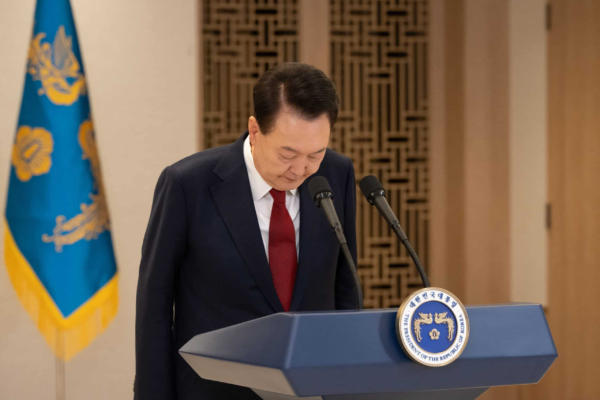Junta forces are mobilizing in central Myanmar amid Shan state ceasefire, rebel say
Myanmar’s junta has been mobilized forces for offensives in the Mandalay, Sagaing and Magway regions at the same that it has significantly reduced attacks in northern Shan state following a recent ceasefire there, members of the rebel People’s Defense Forces told Radio Free Asia. Between Dec. 2 and Dec. 6, junta airstrikes and artillery killed 19 people and wounded at least 10 others in three townships in Mandalay region’s Myingyan district, according to an official from a pro-democracy paramilitary People’s Defense Force, or PDF, who requested anonymity for security reasons. Among the dead were four rebel paramilitary fighters, the PDF official said. The attacks are likely inspired by the junta’s larger aim of regaining control of Myanmar’s central plain heartland, according to the PDF official. The central plains -– home to the country’s majority ethnic Bamar peoples –- has seen fierce fighting since the military’s Feb. 1, 2021, coup. PDF units are made up of ordinary civilians who took up arms against the junta following the coup, and in many areas they have pushed junta troops back from territory the controlled. The offensives also coincide with the recent ceasefire agreed to by the Myanmar National Democratic Alliance Army, or MNDAA, and the Ta’ang National Liberation Army, or TNLA, after pressure from neighboring China. “China’s interference has played a significant role in Myanmar’s overall military situation,” a PDF member in Magway region’s Pakokku township said. “While the TNLA and MNDAA in northern Myanmar are facing pressure from China, the junta has reduced its airstrikes, and battles have decreased in these areas,” he said. “This has led the junta to focus more on the plains.” The attacks have notably increased in Mandalay, Sagaing, and Magway regions since just after junta chief Min Aung Hlaing returned from his early November trip to China, according to local rebel fighters. Resistance forces have abandoned some road sections between Myingyan and Taungthar townships in Mandalay due to the junta’s intensive ground and air attacks, according to the PDF official in Mandalay region’s Myingyan district. The junta has also moved forces into Sagaing region’s Pinlebu township, and have also sent troops along the Ann-Padan route, which is the only connection between Ann town in Rakhine state and Padan in Magway region, the official said. “They are likely preparing to control the central plain areas of Myanmar through a defensive war strategy,” the PDF official said. Political analyst Than Soe Naing said the last few weeks have again highlighted how anti-junta forces need to improve on their military strategy and coordination in central Myanmar. “Without a united front in the plain areas, their offensives have slowed, and they still require more weapons and ammunition,” he said. RFA attempted to contact junta spokesperson Maj. Gen. Zaw Min Tun to ask about the military offensive in the central plains region, but received no response. Translated by Aung Naing. Edited by Matt Reed and Malcolm Foster. We are : Investigative Journalism Reportika Investigative Reports Daily Reports Interviews Surveys Reportika


